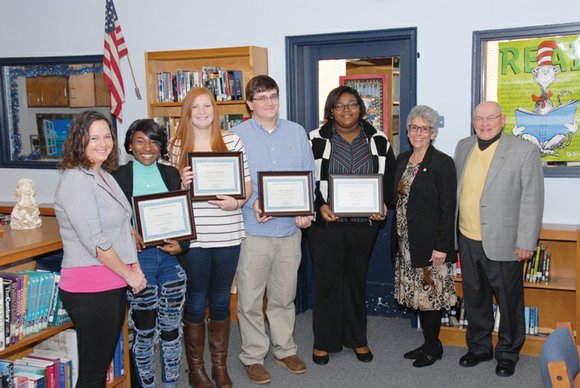State looks to expand youth voter participation
Joey Matthews | 12/18/2015, 4:42 a.m.
Thanks to a little-known law, many 17-year-olds in Virginia can have a voice in which Democratic or Republican candidate is selected to represent their party in the 2016 presidential election.
The state law allows 17-year-olds who will turn 18 by the Nov. 8, 2016, election to register in advance and vote in the state’s 2016 presidential primaries on March 1.
The law also allows the registered teens to vote in any special election that arises before the next general election.
The eligibility allowance also is a provision of the Virginia State Constitution.
“This is great because it allows 17-year-olds to participate, see how (voting) works and hopefully make it a part of their routine,” Commissioner Edgardo Cortés of the Virginia Department of Elections told the Free Press on Monday.
“We hope that if we can get folks involved at a young age, then they would become lifetime voters and participants in the process.”
To showcase the law and encourage more students to become involved in the political process, Virginia Secretary of Administration Nancy Rodrigues traveled to Middlesex High School in Saluda on Wednesday, where she presented framed certificates to four students at the school who worked as officers of election in county precincts during the Nov. 3 election.
At the ceremony, Secretary Rodrigues acknowledged Middlesex High seniors Cody Rhodes, Elexus Carter, Monica Ward and Carlee Browder for their work.
Officials also told other students at the assembly about the law allowing qualifying 17-year-olds to participate in the voting process.
“Voting to me is the most important sacred trust that a citizen does,” Secretary Rodrigues told the Free Press in an interview Tuesday.
“My dad fled a military dictatorship in Portugal, and both of my parents were immigrants to this country,” she added. “Growing up as a kid, I don’t think I saw them ever miss an election.”
She emphasized the importance of initiatives such as the one at Middlesex High that seeks to encourage young people to get involved in the political process.
“The earlier you get involved in the process, the more likely it is to become a lifetime habit,” Secretary Rodrigues said. “And that’s what we want to do — get our citizens involved from the beginning.”
Secretary Rodrigues said she is investigating the possibility of turning the Middlesex experience of using students as election officers into a statewide effort.
“I want to learn from the kids and their (electoral) board what we can do to promote this statewide,” she said.
The idea to recruit high school students to work in the precincts was the brainchild of John Scott, secretary of the Middlesex County Electoral Board. He proposed it to fellow board members last spring when he was appointed to the board. Later, he approached Middlesex school officials with the proposal.
“One of the first things I noticed when I began the job in March was that the general age of the servers in that role were retirees,” Mr. Scott said Wednesday. “I thought, ‘Why don’t we have more younger individuals participating?’ ”
He also saw it also a great way to get more young people involved in the political process. All of the students had to be registered to vote to participate.
“The earlier you get them involved, the more likely they will retain it,” Mr. Scott said. “You cannot get involved in something if you know nothing about it. As a former teacher (now retired), I realized the greatest lesson is when you’re an actual provider of the service rather than the recipient.” The students’ day at the polls started about 5 a.m., they said, and ended about 9 p.m. They each were paid $120 for taking a training class and working on Election Day at the polls.
Elexus said she performed a variety of duties, including greeting voters and distributing sample ballots. She said prior to the experience, she had little interest in politics.
“It generally changed the way I look at politics,” she said. “It was fun meeting new people from around the county, and it was a good learning experience for me.”
Cody said he chose to participate because “I wanted to serve the community.”
He said the older precinct workers were happy the younger people there “because we tend to be more tech savvy. It’s easier for us to understand things like the electronic poll books, and it kept the lines moving faster.”
Elexus and Cody both said they plan to vote in the March presidential primary.







